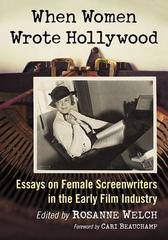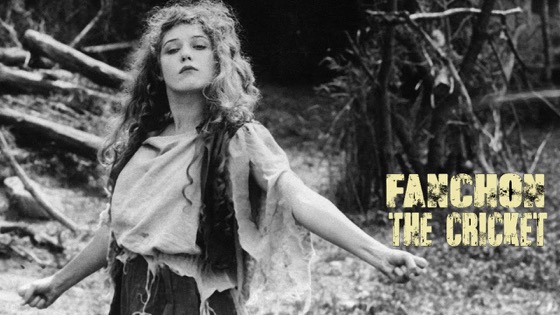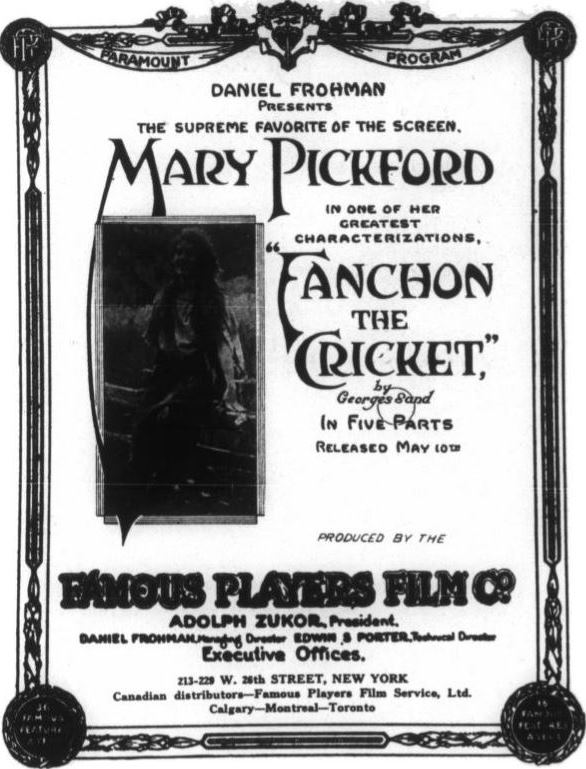An on-going series highlighting the women screenwriters of early Hollywood.
When I was first asked to create a history course for a new MFA focused on the mission of bringing more female voices and female-centric stories to Hollywood, I knew we had to start at the very beginning, when women ran Hollywood. No other course I had ever taken or been asked to teach focused on these women, some of whom I had been reading about since the summers of my childhood in Cleveland, Ohio. Back then, I went to the library once a week to collect a stack of memoirs by women I had seen interviewed on The Merv Griffin Show, women like Anita Loos and Adela Rogers St. Johns. Their stories introduced me to moguls like Louis B. Mayer or Jack Warner, who make up most of the history courses I later found in academia. Knowing better, I found most of those courses, and their accompanying textbooks, glossed over these women with a paragraph if they mentioned them at all. I conceived a course that would begin with these women who began Hollywood and culminate in research by each graduate student into the life and career of one particular early female screenwriter. That is what you find here. A collection of herstories about how these women lived, loved and created the stories that gave their audiences reasons to live and love in their own lives. — Dr. Rosanne Welch, Editor. When Women Wrote Hollywood

Two women from opposite ends of the social spectrum seek love and happiness in Monta Bell’s Lady of the Night (1925). Conceived as a vehicle for rising Metro-Goldwyn star Norma Shearer to deliver a virtuoso performance — and seal her leading lady status — the film presents the actress in a dual role: as Florence, the pampered daughter of an affluent judge (Fred Esmelton), and Molly, an underprivileged dance hall girl. As fate (and a shamelessly sentimental script) would have it, both fall in love with the same man: David (Malcolm McGregor), an ambitious young inventor. — TCM
Buy “When Women Wrote Hollywood” Today!
Paperback Edition | Kindle Edition | Google Play Edition
Help Support Local Bookstores — Buy at Bookshop.org
* A portion of each sale from Amazon.com directly supports our blogs
** Many of these books may be available from your local library. Check it out!
† Available from the LA Public Library


![23 Taking Horror Seriously from When Women Write Horror with Dr. Rosanne Welch [Video] (43 seconds)](https://rosannewelch.com/wp-content/uploads/2020/08/rmw-cpp-horror-23.png)
![22 More On The Auteur Theory from Why Researching Screenwriters (has Always) Mattered [Video] (1 minute)](https://rosannewelch.com/wp-content/uploads/2020/08/rmw-sao-paolo-22.jpeg)


![22 Modern-Day Vampires from When Women Write Horror with Dr. Rosanne Welch [Video] (1 minute)](https://rosannewelch.com/wp-content/uploads/2020/08/rmw-cpp-horror-22.jpeg)
![21 Truffaut and The Auteur Theory from Why Researching Screenwriters (has Always) Mattered [Video] (56 seconds)](https://rosannewelch.com/wp-content/uploads/2020/08/rmw-sao-paolo-21.jpeg)



![21 Buffy and Masculinity from When Women Write Horror with Dr. Rosanne Welch [Video] (1 minute 9 seconds)](https://rosannewelch.com/wp-content/uploads/2020/07/rmw-cpp-horror-21.jpeg)
![20 Ruth Gordon & Garson Kanin from Why Researching Screenwriters (has Always) Mattered [Video ] (53 seconds)](https://rosannewelch.com/wp-content/uploads/2020/07/rmw-sao-paolo-20.jpeg)
![20 Even More On Buffy from When Women Write Horror with Dr. Rosanne Welch [Video] (1 minute 16 seconds)](https://rosannewelch.com/wp-content/uploads/2020/07/rmw-cpp-horror-20.jpeg)